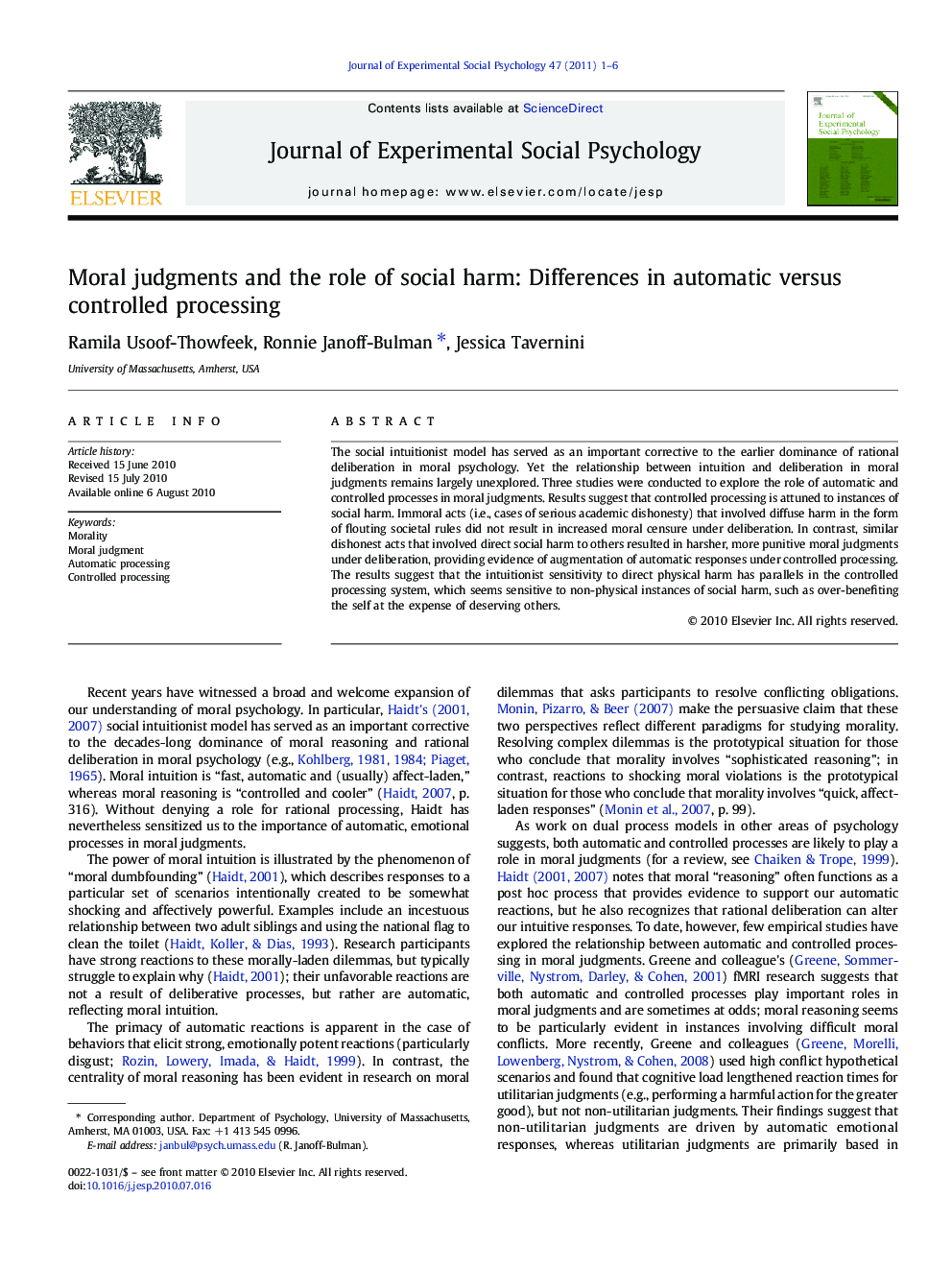| کد مقاله | کد نشریه | سال انتشار | مقاله انگلیسی | نسخه تمام متن |
|---|---|---|---|---|
| 948321 | 926462 | 2011 | 6 صفحه PDF | دانلود رایگان |

The social intuitionist model has served as an important corrective to the earlier dominance of rational deliberation in moral psychology. Yet the relationship between intuition and deliberation in moral judgments remains largely unexplored. Three studies were conducted to explore the role of automatic and controlled processes in moral judgments. Results suggest that controlled processing is attuned to instances of social harm. Immoral acts (i.e., cases of serious academic dishonesty) that involved diffuse harm in the form of flouting societal rules did not result in increased moral censure under deliberation. In contrast, similar dishonest acts that involved direct social harm to others resulted in harsher, more punitive moral judgments under deliberation, providing evidence of augmentation of automatic responses under controlled processing. The results suggest that the intuitionist sensitivity to direct physical harm has parallels in the controlled processing system, which seems sensitive to non-physical instances of social harm, such as over-benefiting the self at the expense of deserving others.
Journal: Journal of Experimental Social Psychology - Volume 47, Issue 1, January 2011, Pages 1–6